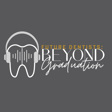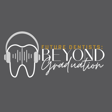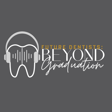
Navigating Dental Challenges: Overcoming Patient Conflicts and Stress
About the Hosts:
Dr. Savanah Craig is a dedicated professional in the field of dentistry. Currently, she navigates the early years of her career with a focus on practical experiences and challenges faced in the dental profession. Known for her insightful perspectives and strong support within the dental community, Dr. Craig provides an authentic look at the everyday realities beyond dental school.
Dr. Ronnetta Sartor is an experienced dentist with a commitment to transforming smiles and providing top-notch patient care. With multiple years of experience, she frequently addresses the complexities of handling patient interactions and the realities of practicing dentistry. Dr. Sartor is recognized for her proactive communication strategies and ability to connect with listeners through relatable experiences.
Episode Summary:
In this episode of Beyond Graduation, Drs. Savanah Craig and Ronnetta Sartor explore the less-discussed aspects of life after dental school, delving into real-world challenges and experiences that shape their early careers. With an emphasis on authenticity and transparent discussions, this episode shines a light on dealing with patient interactions and the unexpected situations that arise in the dental profession.
The doctors share personal stories around encounters with patients, including the stressful and occasionally intimidating aspects of the job, like dealing with patient threats and navigating police reports. This raw and unfiltered conversation highlights the importance of over-communication and building a robust support network within the practice. Themes of professional ethics, patient communication, and maintaining personal safety are woven throughout the discussion, providing valuable insights into the complexities of modern dentistry. The episode underscores the emotional and ethical challenges that dentists face, while also reinforcing the importance of community and resilience in the profession.
Key Takeaways:
- The significance of over-communication in patient-dentist interactions to prevent misunderstandings.
- Understanding the ethical responsibility of saying no when treatment plans conflict with patient desires.
- The importance of community and support networks in navigating challenging professional experiences.
- Insights into how personal and patient expectations can vary greatly, and how to manage them.
- Strategies for maintaining personal safety and professionalism amidst difficult situations.
Connect with Us:
- Savanah Craig, DDS: @savanahcraigdds
- Ronnetta Sartor, DMD: @dr_sartor
- FutureDentists Beyond Graduation: @futuredentistsbeyondgraduation
- FutureDentists: @futuredentists
- IgniteDDS and IgniteDDS Coaching: @ignitedds and www.ignitedds.com
Delve deeper into the intriguing narratives shared by Drs. Craig and Sartor by tuning into the full episode. Stay connected for more enlightening discussions from Beyond Graduation, as the series continues to explore the multifaceted journey beyond dental school.



